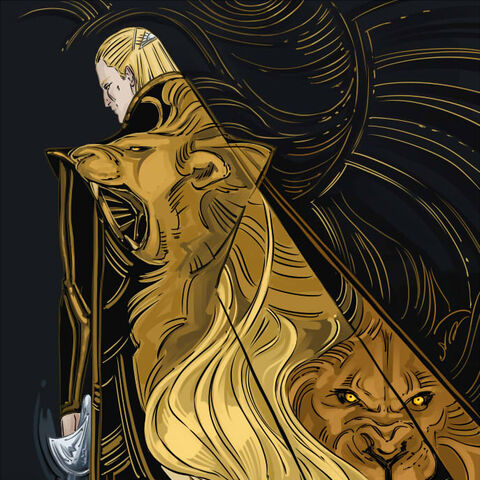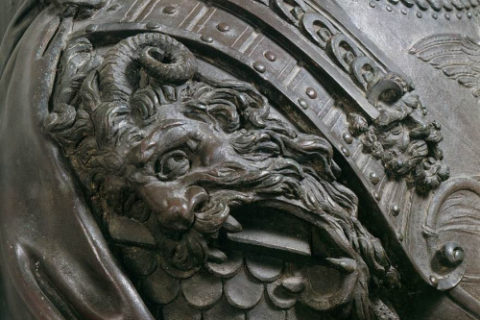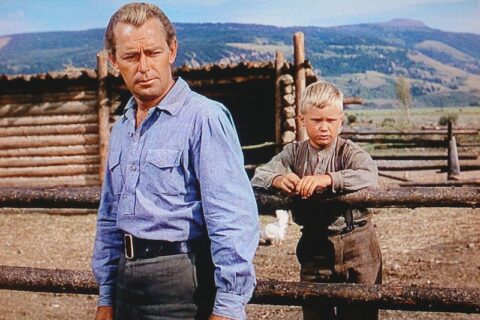Slaves and Citizens
Wow, look at you. Mommy’s big boy, all grown up. You can do anything, now that you’re an adult. You can eat all the cake, drink all the craft beer, and watch all the porn into the wee hours of the morning because nobody can limit your consumption now that you’ve shed the trappings of childhood and become a man. Or, have you?
Take a step back and look at who you have become. Today, the average American male is a pale specter of manliness that was present just a few generations prior. Grip strength tested today is down 20% over a span of 30 years. We spend more time indoors and are sedentary, our short-term memory is basically non-existent and we’re sicker than ever. Compare yourself to men of the past and ask if you really deserve the same title as them.
Comparing the Greek words Aner vs Anthropos reveals us how a distinction that once existed between men and the rest. Real men have been, and will always be, rare – while all others will just be shadow figures. While both terms described human males, aner went farther, to distinguish said men as those who were more than just the base. Consumers, and modern NPCs, all fit the definition of anthropos. They do not rise in any discernible way past the flesh heap of common man. Therefore, they do not deserve any higher title than that. Why then would there be no further distinctions between the two?
Slave Societies and the Military State
The great slave societies of the past included, but were not limited to, the Greek city states, the Roman Empire, and the antebellum South. Each of these civilizations maintained large slave populations that constituted significant portions of their labor force. Sparta stands out as one of the most stark examples of a slave society in that slaves, or helots, constituted around 80% of Sparta’s population. The slave population, at its peak, in Dixie constituted around 33%, despite being a mere 13% of the total U.S. population. Being that Sparta, and to a lesser extent other slave societies, contained so many slaves, there were constant and realistic fears of slave uprisings that could threaten the lives and business interests of the rest of the population. It is no coincidence that each of the great slave societies maintained strong military traditions and standing forces at the ready to check against uprisings.
Being the smart Greek planner that you are, how do you go about ensuring that your current population, and future generations, aren’t swallowed up by a slave revolt? Foster a strong military tradition within your youth and see that you produce warriors for generations to come. The Southern tradition of military commitment started not only because service to defend their homeland was noble, but also because there was always the danger of uprisings within their own borders. Military schools like VMI and the Citadel were formed to stand ready and put down anything that could be raised nearby.
The South, like other great slave societies, was not just a militaristic one, but the sort of society that simultaneously fosters a culture in which social refinement blooms. Southern poets, authors, artists and statesmen were, more often than not, the leading talents in their fields, even after the end of the War. Southern military schools did, and have continued, to produce leaders in many fields disproportionate to their competitor schools. The Southern military tradition even continues today with over 50% of the combat forces of the United States being produced by the Southern states, wholly disproportionate with the country’s population.
Similarly, the Spartans, owing to their greater threat of a slave uprising, formed an extreme militaristic rearing system called the agoge. Mandatory for all, but the first born sons of the royal families, the agoge subjected children at the age of seven to brutal training. This was designed to prepare them for military service and the burden of citizenship. Training included, but was not limited to, military, survival, oratory and athletic programs.
Those going through the agoge were often underfed, not only to keep them lean and encourage them to steal, but to let them know what it was like and how to deal with hunger before they encountered it on the battlefield. This concept of forced struggle and hardship was what made the Spartans truly stand apart, in that they came tested to battlefields where most were not. At the age of 21, they’d be entered into military service with proper military training. Their service would give them the opportunity to enter into full citizenship, but this required a vote by their peers into a Mess, which probably required them not to be some weird sperg.
As in the novel Starship Troopers, you could not vote or become a citizen if you did not complete your military service requirements. The end product of this agoge and military service allowed the numerically disadvantaged Spartans to reign over their more numerous helots with an iron fist, while simultaneously warding off enemy nations. Compared to the heroic Greek soldiers of other city states, the Spartans were, for the most part, the professional elites. Not only this, Sparta was also home to some of the most iconic artists and architects of the time, something that similarly occurs in other great slave societies. The agoge was such a revered system that nobles, from all around the Greek world, would fight for a chance to send their child through the same system.
All this and more was required just for Spartans to attain the rights and privileges that you, as that special grown-up boy that you are, think you are entitled to. What though have you done to earn said rights? While you may believe that the rights to life, liberty and the pursuit of happiness are inalienable, and God given, can you really believe that all men are equal? Can two individuals of different size, or even importance, be entitled to the same share of finite resources within their country? Why should a self-diagnosed depressive, bipolar lgbtqaipsuv demikin have the same rights and privileges as someone who contributes to society? Why should the average person even have the right to vote?
I’ve written before about chattel slavery and how the absence of self-mastery would result in your enslavement. How then, can people who fail to master themselves, have responsibility to weild a tool to oppress others?
For what sense or understanding have they? They follow minstrels and take the multitude for a teacher, not knowing that many are bad and few good. For the best men choose one thing above all – immortal glory among mortals; but the masses stuff themselves like cattle.
Heraclitus
The byproduct of the great slave societies’ need for military tradition bore out the pleasant side effect that those who bore through the rigors of said systems were rarely below average and often outpaced their contemporaries. At a bare minimum, I believe the goals of the agoge and the military schools of the South achieved a common goal of bettering, and making man from chaff, and it would be to our collective benefit to promote invest in these systems as a safe political franchise. While we don’t have “slave” uprisings to worry about today, we still have hordes of foreigners reveling in the fact that they will soon outnumber us. I’m not telling you to join the military or become a soldier in a standing army, but I do see merit in voluntarily subjecting yourself and your mannerbund (to be discussed in a later article).
How will we react when our town gets violently enriched as did Ferguson, Missouri and the government is too impotent to react, having spent their time on forced inclusivity training instead of learning how to put down a riot? Will you put the safety of your family in the hands of a diversity hire, or trust that you, or your neighbors, have trained to handle such tumultuous events yourselves?
While we may not yet be free as a people to create our own agoge, or revitalize the dying military schools of Dixie, do not dawdle and wait for someone else to protect you. Subject yourself to the stresses you can foresee long before they are subjected upon you by others. Little by little, we’ve softened down to shadows of our hardened ancestors, but we should not see this as a finality, and should instead use this as motivation to rebuild what has been lost.

We are witnessing, not the natural end of a great human civilization, but the birth of an inhuman civilization that could never have come into being without a vast, an immense, a universal sterilization of life’s highest values




